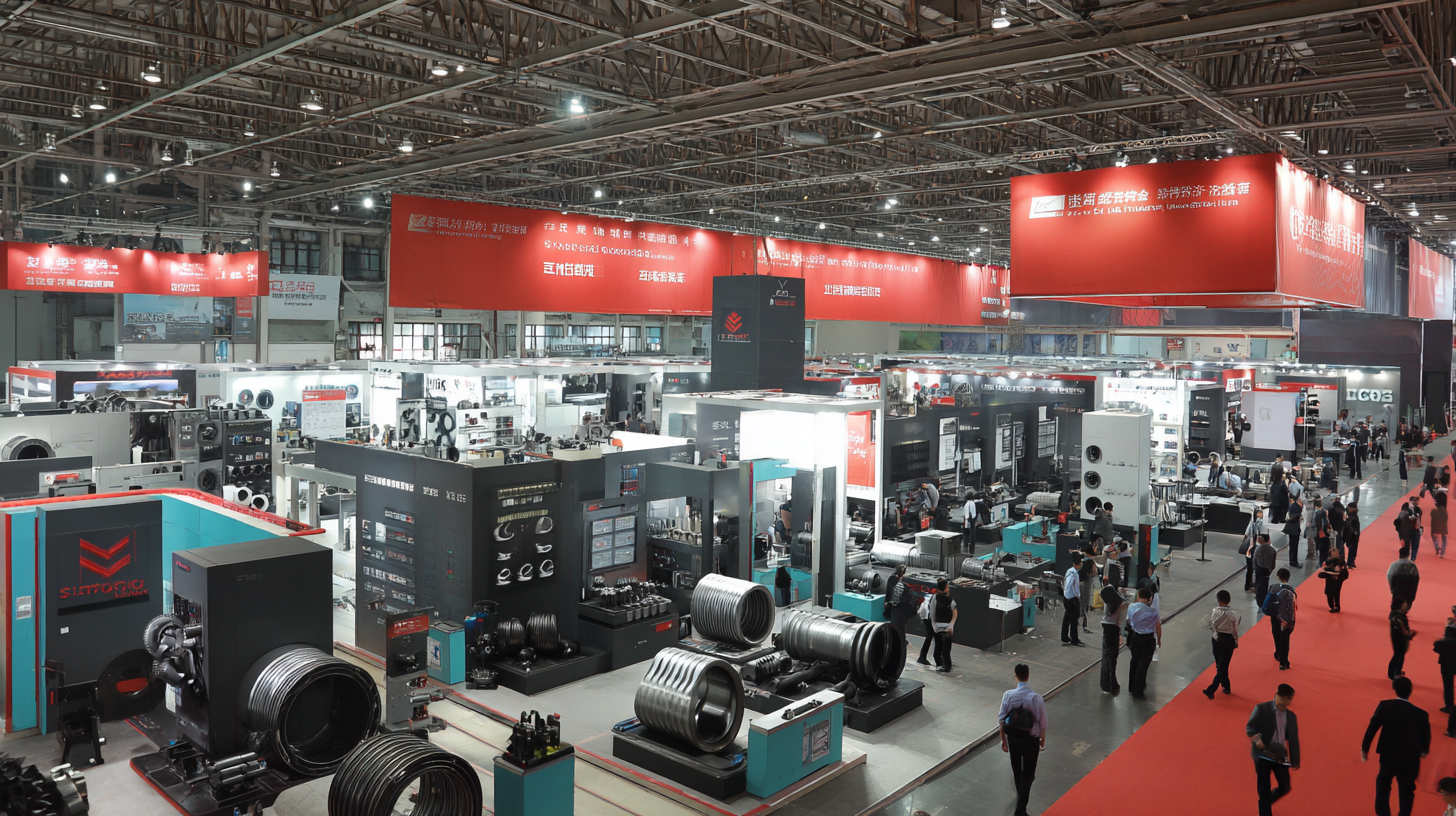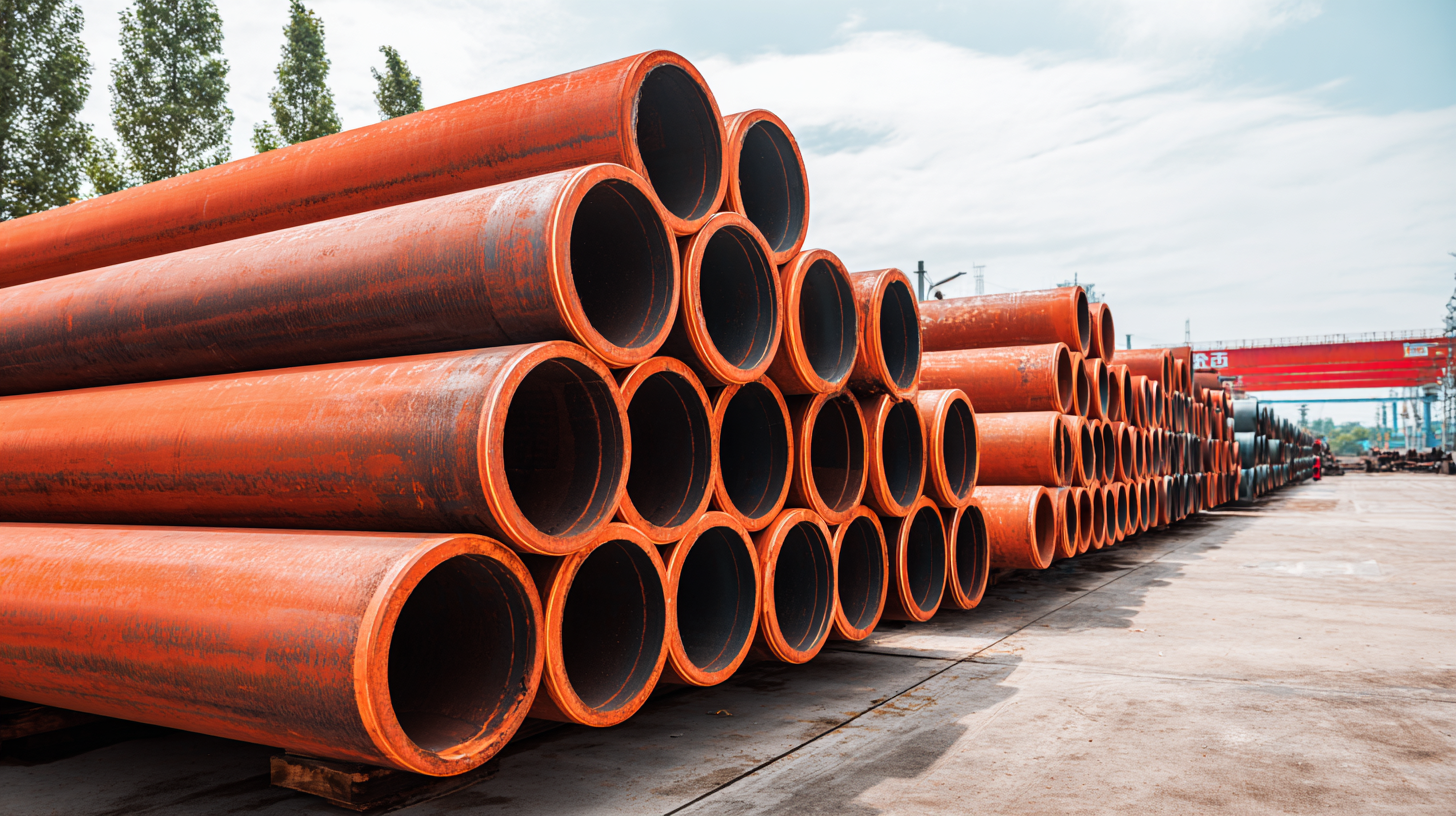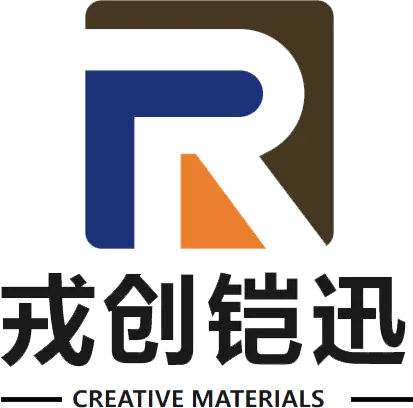As the global demand for advanced materials continues to surge, Silicon Carbide Tubes have emerged as a pivotal innovation in various industries, particularly in electronics, aerospace, and energy sectors. The 2025 China Import and Export Fair presents a significant platform to explore the future of these tubes, which are projected to witness a compound annual growth rate (CAGR) of over 20% in the next five years, according to recent market research reports. This remarkable growth can be attributed to the increasing adoption of Silicon Carbide in high-performance applications due to its superior thermal conductivity, high efficiency, and ability to withstand harsh environments. At the 138th Canton Fair, industry leaders and stakeholders will have the opportunity to discuss emerging trends, technological advancements, and potential applications of Silicon Carbide Tubes, reinforcing their role in the transition towards more sustainable and efficient technologies.

The 2025 China Import and Export Fair will serve as a significant platform to showcase future innovations in silicon carbide tube technology.
 Silicon carbide (SiC) tubes have emerged as a game-changer in various industries due to their superior thermal conductivity, resistance to oxidation, and impressive mechanical strength.
These properties make SiC tubes highly desirable for applications ranging from electronics to aerospace, where high-performance materials are crucial for efficiency and longevity.
Silicon carbide (SiC) tubes have emerged as a game-changer in various industries due to their superior thermal conductivity, resistance to oxidation, and impressive mechanical strength.
These properties make SiC tubes highly desirable for applications ranging from electronics to aerospace, where high-performance materials are crucial for efficiency and longevity.
In the realm of future innovations, we can expect advancements such as innovative manufacturing techniques that enhance the purity and structural integrity of silicon carbide. Additionally, breakthroughs in coating technologies may lead to enhanced durability and functionality of SiC tubes, allowing for even greater versatility in high-temperature and corrosive environments. Innovators and researchers are also focusing on the integration of smart technologies within silicon carbide tubes, enabling real-time monitoring and optimization of performance metrics. This convergence of materials science and smart technology promises to redefine industry standards and push the boundaries of what's possible with silicon carbide tubes.
As the automotive industry continues to evolve, the demand for
silicon carbide (SiC) tubes is expected to experience
significant growth by 2025, driven largely by advancements in
power electronics and electric vehicle technology.
According to market forecasts, the global automotive power module market is projected to grow
from $9.86 billion in 2025 to $25.14 billion by 2032, showcasing a compound annual
growth rate (CAGR) of 14.3%. This surge indicates a robust demand for efficient components,
with silicon carbide tubes at the forefront due to their
superior thermal conductivity and efficiency.
The semiconductor industry is witnessing a similar trajectory, with key trends such as
generative AI and automotive electronics setting the stage for
rapid developments in silicon wafer production and applications. By 2025, the technological advancements and
structural growth trends in the semiconductor market are expected to revitalize the demand for advanced
packaging solutions and materials, particularly silicon carbide. As a critical component in electric vehicles,
SiC semiconductors enable faster charging times and extended driving ranges, thus underscoring their vital role in
the electrification of transportation. This shift aligns with a broader move toward sustainability and efficiency
within the automotive sector, further propelling the market for
silicon carbide tubes in the coming years.

Silicon carbide (SiC) tubes have emerged as a prominent material in various industries, particularly due to their extraordinary durability and thermal resistance. However, as we explore their future at the 2025 China Import and Export Fair, it is essential to address the environmental impact and sustainability of SiC products. The production of silicon carbide involves energy-intensive processes and the mining of raw materials, which can result in significant carbon emissions if not managed properly. Thus, the industry faces the challenge of optimizing these processes to minimize their ecological footprint.
Sustainability initiatives are already being adopted by manufacturers in an effort to mitigate these environmental concerns. Innovations such as recycling SiC materials and developing cleaner production technologies are crucial steps toward enhancing the lifecycle and reducing waste. Furthermore, SiC tubes are increasingly being recognized for their ability to contribute to energy efficiency in applications such as power electronics and automotive systems, which can lead to lower emissions in the long run. By focusing on sustainable practices and promoting the circular economy, the future of silicon carbide products can align with global environmental goals while meeting the growing demand for high-performance materials.
The semiconductor industry is witnessing a fierce competition in the Silicon Carbide (SiC) sector, with players like Wolfspeed and Samsung leading the charge. This race is not just a matter of technological advancement; it represents strategic investments driven by the surging demand in sectors such as electric vehicles and AI technologies. As industry giants intensify their focus on SiC, they are facing increasing pressure from emerging Chinese competitors who are also keen to capitalize on this lucrative market.
Tips: When considering investments in the SiC sector, it is crucial to stay informed about the evolving landscape. Pay attention to how established companies are adapting to market changes and the strategies they implement to maintain their competitive edge. Additionally, keep an eye on the growth projections of related markets, such as SiC MOSFETs, as these can indicate broader trends in semiconductor demand.
As Wolfspeed restructures its operations to improve efficiency and financial stability, other players like ON Semiconductor are also recalibrating their strategies in response to market fluctuations. With projections showing a strong compound annual growth rate for the SiC wafer market, the competition is bound to heat up, prompting companies to innovate and differentiate their offerings to capture market share.
Silicon carbide (SiC) tubes are gaining attention across various sectors due to their exceptional properties, including high thermal conductivity, chemical resistance, and mechanical strength. In the field of electronics, SiC tubes are poised to revolutionize power devices, particularly in electric vehicles and renewable energy systems. Their ability to operate at higher temperatures and voltages makes them ideal candidates for enhancing efficiency and reliability in power conversion systems, thus paving the way for greener technologies.
In addition to electronics, the aerospace and defense industries are likely to benefit significantly from SiC tubes. Their lightweight yet robust nature allows for the design of more fuel-efficient and durable components, such as engine parts and thermal protection systems. Moreover, in industrial applications, SiC tubes can improve performance in high-temperature furnaces and chemical reactors, offering extended service life and reduced maintenance costs. As the demand for more sustainable and efficient solutions grows, the potential applications and benefits of silicon carbide tubes across these sectors are set to expand, making them a key focus at the upcoming 2025 China Import and Export Fair.






